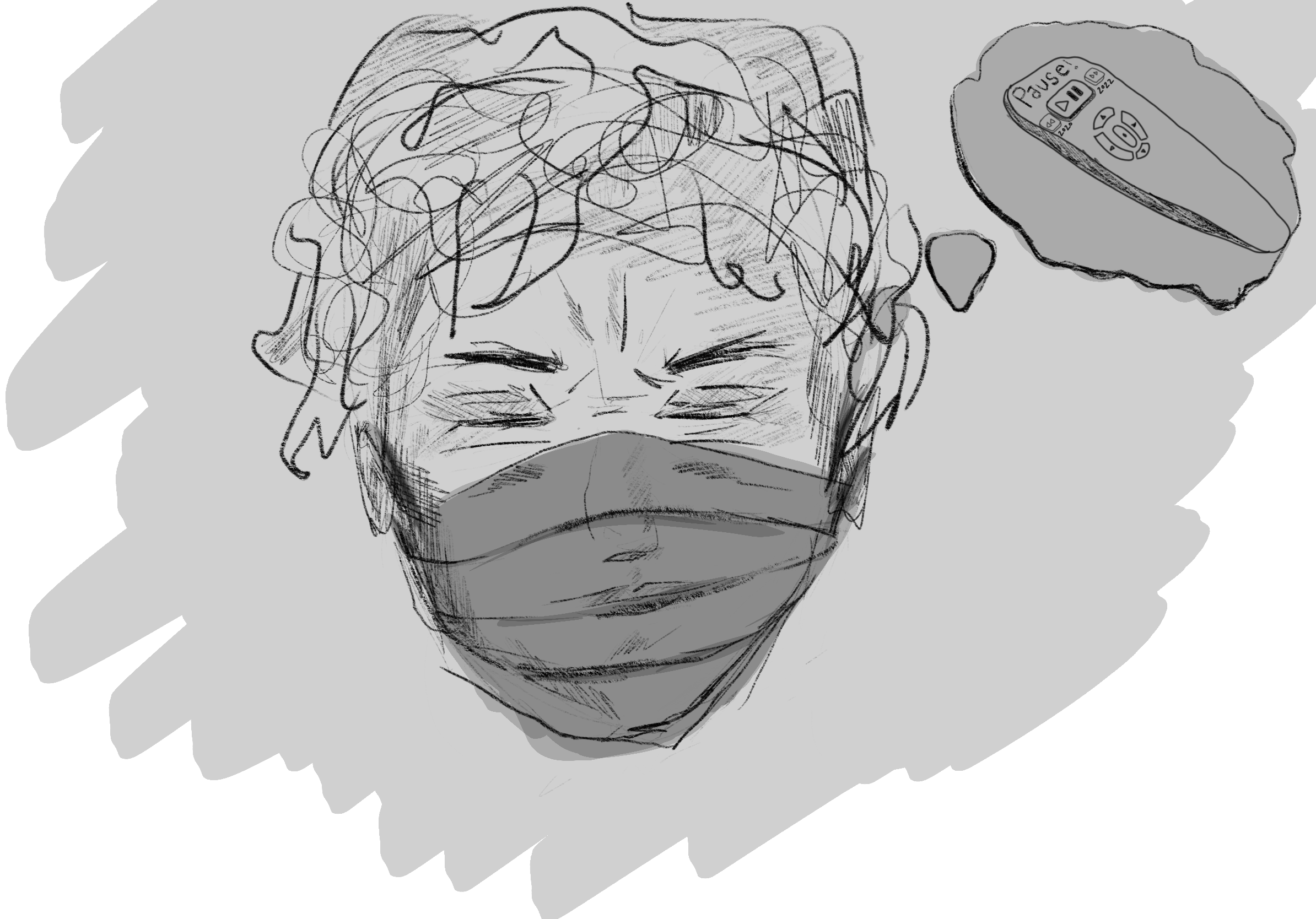On the need for busyness in our lives
October 21, 2022
 This
piece represents the opinion of the author
.
This
piece represents the opinion of the author
.
 Perrin Milliken
Perrin MillikenSo many times this semester, overwhelmed with the pace of everyday life, I have found myself filled with the desire to hit the pause button. “If I had a week, or even a couple of days just to catch my breath,” I think to myself, “I would finally be able to get ahead on work, get enough sleep and see all the friends I’ve been meaning to.” As much as I like to hold this idea in my head, I know deep down that it’s ultimately a lie. Even if I found these extra few days, I know that the same tendencies that make me so busy in the first place would inevitably find some way to fill the time.
It’s hard to imagine on a daily basis, though, that I did choose, at some point, to make myself this busy: first, by picking a college that I knew would challenge me, and on top of that, by involving myself in all the clubs and activities that I participate in. As much as I may hate it, there is some part of me that repeatedly places myself in situations where I am occupied around the clock. And from the conversations I’ve had with friends, I know I’m not the only one.
There’s a specific reason why I feel so aware of this need to be constantly busy. During the spring of 2020, I not only got the few empty, unscheduled days that I had been looking for but rather months on end. I would’ve thought that having such a big stretch of time with minimal schoolwork, only a few classes a week and almost no activities outside of school would be unbelievably relaxing and almost luxurious. However, this could not have been farther from the truth. While I certainly spent time resting, lazing around and watching movies with family, many of those days were filled with anxiety, my thoughts moving a million miles an hour, with nothing to guide me and little to which to apply myself. Of course, some part of this feeling was due to the isolation and uncertainty of quarantine. But when I reflect back on that spring, it is the distinctive feeling of my mind moving uncomfortably faster than the suddenly quiet, still world around me that penetrates through the fog of my memory.
But as the pandemic wore on, I think I learned to both accept and adapt to the slower pace of life. I felt more and more able to concentrate fully on the fewer responsibilities that I did have, and I found ways to fill up time with activities that grounded me and made me happy: going on runs, walking my dog or cooking with my mom. As my teachers, high school and society at large placed a greater emphasis on the importance of staying healthy—mentally as well as physically—I felt less guilty doing nothing, or taking time for my own enjoyment.
Jumping into a full-fledged college experience after such a slow, albeit disrupted, senior year of high school has been nothing short of shocking. I felt the greatest impact of this rapid change during my first semester at Bowdoin last fall, as I found myself constantly exhausted. Coming from a year and a half of seeing mostly the same group of people and doing less work than normal, I was wholly unprepared for the amount of social, academic and physical effort that each day entailed.
It seems that every month we move away from the depths of Covid-19, there is yet greater emphasis placed on the need to be “back to normal,” to bring life back to an ever increasing speed. This is a desire I’ve encountered nearly everywhere: within myself, within the faster pace of social life, within a decreasing tolerance for extensions on assignments and within the removal of the general sense of forgiveness and leniency that existed during the height of the pandemic. There is certainly a lot that we undoubtedly want to leave behind about our life during the height of the pandemic. The push to move past the dysfunction, isolation and pain of the last few years is certainly warranted.
But returning thoughtlessly to the habits of pre-pandemic life may seek to erase the traumatic, yet incredibly meaningful experiences that so many of us have had since March 2020. Although it came mostly from sheer necessity, and not some sort of larger societal progress, the increased attention given to mental health during Covid is not something to be left behind. While there certainly has been a heightened awareness of the topic since the pandemic, the time and flexibility intentionally given to mental health has started to fade away.
As life has appeared more and more “normal,” it has become increasingly more difficult to convince professors, friends and most importantly, ourselves, that taking time for our own health and wellbeing is acceptable. As schedules are yet again full with meetings, classes and commitments, the memory of life during the pandemic seems to beg the question: why do we (personally, culturally and institutionally) so pathologically hold ourselves and each other to be perpetually busy? And why did it take a world altering event to change that?
These are perhaps not questions meant to be answered immediately, but ones that we should not feel ashamed to ask.

Comments
Before submitting a comment, please review our comment policy. Some key points from the policy: